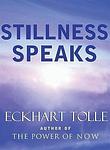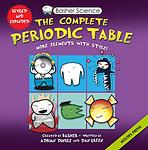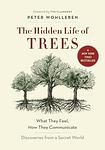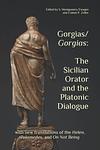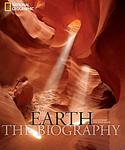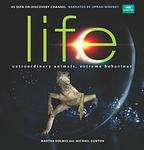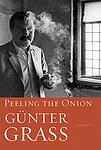The Greatest Multiple, German "Nonfiction" Books Since 2000
Click to learn how this list is calculated.
This list represents a comprehensive and trusted collection of the greatest books. Developed through a specialized algorithm, it brings together 291 'best of' book lists to form a definitive guide to the world's most acclaimed books. For those interested in how these books are chosen, additional details can be found on the rankings page.
Genres
Countries
Date Range
Reading Statistics
Click the button below to see how many of these books you've read!
Download
If you're interested in downloading this list as a CSV file for use in a spreadsheet application, you can easily do so by clicking the button below. Please note that to ensure a manageable file size and faster download, the CSV will include details for only the first 500 books.
Download-
1. Essays On Music by Theodor Adorno
This collection is a comprehensive anthology of critical essays on the subject of music, written by one of the 20th century's most influential philosophers and social critics. The work delves into the complexities of musical composition, performance, and reception, offering a profound exploration of the social, political, and cultural dimensions of the musical experience. The author critiques the commodification of music in capitalist societies and the way this impacts artistic authenticity and the listener's experience. Through a series of essays, the author examines various genres and eras, from classical to jazz to popular music, applying a rigorous theoretical framework that draws from Marxist thought, sociology, and psychoanalysis to dissect the role of music in modern life.
-
2. Stillness Speaks by Eckhart Tolle
The book is a guide to discovering profound inner peace and serenity through the power of mindfulness and stillness. It delves into the transformative potential of living in the present moment and disengaging from the constant chatter of the mind. The author presents a series of meditative insights and wisdom that encourage readers to connect with the depth of the present moment, transcending ego-driven thoughts and emotions. By embracing stillness, the book suggests that individuals can access a deeper sense of self-awareness, leading to a more fulfilling and enlightened existence.
-
3. La Charte Du Mandé Et Autres Traditions Du Mali by Aboubakar Fofana, Jean-Louis Sagot
"La Charte Du Mandé Et Autres Traditions Du Mali" is a comprehensive exploration of the rich historical and cultural heritage of Mali, focusing on the ancient Mandé Charter, also known as the Manden Charter. This seminal text delves into the origins and implications of this 13th-century document, which is one of the earliest forms of human rights charters. The book not only examines the charter's principles of social justice, equality, and political ethics but also contextualizes it within a broader spectrum of Malian traditions, shedding light on the country's profound historical narratives and the enduring cultural practices that continue to shape its identity.
-
4. The Invention Of Nature: Alexander Von Humboldt’s New World by Andrea Wulf
"The Invention of Nature" is a biographical account of Alexander von Humboldt, a 19th-century explorer, scientist, and naturalist who revolutionized the way we understand the natural world. Andrea Wulf chronicles Humboldt's travels across South America, his encounters with indigenous peoples, and his groundbreaking scientific discoveries that challenged prevailing notions of the natural world. Humboldt's ideas about interconnectedness and the unity of nature were ahead of their time and continue to influence environmentalism and conservation today. Wulf's book is a masterful exploration of one of history's most fascinating and influential figures.
-
5. Thomas Mann Heinrich Mann by Helmut Koopmann
The book provides a comprehensive study of the lives and works of two prominent German literary figures, who were also brothers. It delves into their complex relationship, contrasting ideologies, and individual contributions to literature and culture. The author examines their personal and professional journeys, exploring how their differing views on art, politics, and society reflected the broader intellectual and historical currents of their time. Through a detailed analysis of their novels, essays, and other writings, the book offers insights into the brothers' influence on each other and on the literary world, highlighting their lasting legacy in the context of German and world literature.
-
6. Japanese Philosophy by John C. Maraldo, Thomas P. Kasulis, James W. Heisig
This book provides a comprehensive overview of Japanese philosophy, exploring its unique characteristics and its evolution through history. It delves into the diverse intellectual traditions of Japan, including both well-known philosophical schools and lesser-known but equally significant ideas. The text examines how Japanese philosophy has been influenced by and has interacted with other philosophical traditions, particularly Western philosophy, while also highlighting its distinct approach to fundamental philosophical issues such as ethics, aesthetics, and the nature of reality. Through a detailed analysis, the book offers insights into how Japanese philosophical thought has contributed to broader philosophical discourse and how it reflects the cultural and historical context of Japan.
-
7. Along The Ganges by Ilija Trojanow
The book is a travelogue that takes the reader on a captivating journey along the sacred Ganges River, from its source in the Himalayas to its delta in the Bay of Bengal. The narrative is rich with descriptions of the diverse landscapes, cultures, and people encountered by the author. It delves into the profound spiritual significance of the river to millions of Hindus, as well as the contemporary challenges it faces due to pollution and modernization. Through personal reflections and encounters, the author explores the complex relationship between the river and the civilization it has nurtured for centuries, offering insights into the historical, religious, and ecological aspects of this iconic waterway.
-
8. The Philosophical Works Of Al Kindi by Peter E. Pormann, Peter Adamson
This book is a comprehensive compilation and analysis of the works of Al-Kindi, often regarded as the first of the Muslim peripatetic philosophers. The text delves into Al-Kindi's extensive contributions to various fields of knowledge, including philosophy, mathematics, astronomy, and medicine, highlighting his role as a pivotal figure in the translation and transmission of ancient Greek philosophy to the Islamic world. Through translations of his works and insightful commentary, the book provides a critical exploration of Al-Kindi's synthesis of philosophical thought and his influence on subsequent Islamic and Western intellectual traditions.
-
9. Conquest Of The Useless by Werner Herzog
"Conquest of the Useless" is a reflective memoir that presents a collection of the author's diary entries written during the tumultuous production of a major film in the early 1980s. Set in the heart of the Amazon rainforest, the narrative captures the intense challenges faced by the film crew, ranging from logistical nightmares and clashing personalities to confrontations with nature and local cultures. The author's poetic and introspective prose delves into the emotional and existential upheavals experienced during the making of the film, revealing his relentless determination and the surreal experiences encountered in a remote and demanding setting.
-
10. The Periodic Table by Adrian Dingle, Simon Basher
"The Periodic Table" is an educational book that presents the elements of the periodic table in a unique and engaging way. Aimed at younger readers, the book personifies each element, giving it a distinct voice and personality to make the scientific content accessible and entertaining. Through vivid illustrations and concise explanations, the book covers essential concepts about the structure and behavior of elements, their roles in the natural world, and their applications in various fields of science and industry. This approach not only helps demystify complex chemistry topics but also sparks curiosity and enthusiasm for science in its readers.
-
11. The Other Education: What you should know about the natural sciences by Ernst Peter Fischer
"The Other Education: What You Should Know About the Natural Sciences" is a comprehensive guide that seeks to make the complex world of natural sciences more accessible and understandable to the layperson. It delves into various scientific disciplines, including physics, chemistry, and biology, providing insights into their fundamental principles, historical development, and their impact on society. The book also discusses the importance of scientific literacy, the role of science in shaping our worldview, and the need for a well-rounded education that includes a solid understanding of the natural sciences.
-
12. The Edge Of Physics by Anil Ananthaswamy
"The Edge of Physics" is a captivating exploration into the most extreme and remote scientific observatories around the world, where physicists are pushing the boundaries of our understanding of the universe. The book delves into the challenges and adventures faced by scientists as they work in inhospitable and often dangerous environments—from deep underground mines to high mountaintops and the icy expanses of Antarctica—to conduct experiments that probe the mysteries of dark matter, cosmic rays, and the origins of the universe itself. Through vivid storytelling, the book not only sheds light on cutting-edge scientific research but also reflects on the profound human curiosity and relentless pursuit of knowledge that drive these extraordinary endeavors.
-
13. The Hidden Life Of Trees by Peter Wohlleben
This book offers a fascinating exploration into the complex life of forests, revealing the social networks and communication methods that trees use to survive and thrive. The author, a forester, draws on groundbreaking scientific discoveries to illustrate how trees are like human families: tree parents live together with their children, communicate with them, support them as they grow, share nutrients with the sick and the weak, and even warn each other of impending dangers. With deep understanding and an eye for the wonder of these essential organisms, the narrative transforms the way we perceive trees, encouraging us to appreciate the intricate and interconnected life of the forest.
-
14. Gorgias/Gorgias : The Sicilian Orator And The Platonic Dialogue by Coleen P. Zoller, Jurgen R. Gatt, S. Montgomery Ewegen
This book provides a comprehensive analysis of the Platonic dialogue centered on the figure of Gorgias, a renowned Sicilian orator and sophist. It delves into the philosophical conversations between Socrates and Gorgias, along with other interlocutors, exploring themes such as rhetoric, justice, and the nature of the good life. The text examines the intricacies of Socratic dialectic and the contrast between philosophical inquiry and the art of persuasion practiced by sophists. Through this exploration, the book sheds light on the enduring questions about the relationship between power, knowledge, and ethics in the context of human discourse and action.
-
15. Marzahn, Mon Amour by Katja Oskamp
"Marzahn, Mon Amour" is a reflective and poignant narrative that delves into the lives of ordinary people through the lens of a podiatrist working in the Marzahn district of East Berlin. The book offers a tapestry of human stories, as the protagonist encounters a diverse array of clients, each with their own unique backgrounds and experiences. Through the intimate setting of the treatment room, the author weaves together tales of the community's past and present, exploring themes of identity, resilience, and the search for meaning in the day-to-day. This work serves as a touching exploration of the seemingly mundane aspects of life that, upon closer inspection, reveal the depth and complexity of the human condition.
-
16. Earth by Iain Stewart, John Lynch
This book provides a comprehensive exploration of the Earth's extraordinary history and the complex processes that have shaped it over billions of years. Through vivid descriptions and insights from scientific discoveries, the text delves into the dynamics of the planet's geology and climate, examining how these factors have influenced the evolution of life and continue to affect our present environment. The narrative also highlights the interconnectivity of Earth's ecosystems and the impact of human activity on its ongoing geological and biological transformations.
-
17. Life by Martha Holmes, Michael Gunton
"Life" is a captivating exploration of the adaptability and diversity of life on Earth, detailing the extraordinary tactics organisms employ to survive and thrive. The book, accompanying a major documentary series, delves into the lives of various plants and animals, showcasing their complex behaviors and the remarkable strategies they use to overcome environmental challenges. From the depths of the ocean to the canopies of rainforests, the narrative is richly illustrated and brings to light the interconnectedness of Earth's ecosystems and the ingenuity of its inhabitants, emphasizing the resilience and beauty of the natural world.
-
18. Crusade and Jihad: Islam and the Christian World by Bassam Tibi
This book explores the historical, ideological, and political aspects of the Crusades and Jihad, comparing and contrasting the two. It delves into the origins and evolution of the Crusades and Jihad, their impact on Christian and Islamic societies, and their relevance in today's world. The author also examines the role of religion in conflicts and the use of religious ideologies for political purposes, providing a comprehensive understanding of these complex issues.
-
19. Peeling the Onion by Günter Grass
"Peeling the Onion" is a memoir that explores the author's experiences during and after World War II. The author, a Nobel laureate, reveals his involvement with the Waffen SS, a paramilitary organization of the Nazi party, when he was a teenager. The book delves into the author's struggle with guilt and memory, his journey to becoming a writer, and his exploration of how personal and collective memory impact our understanding of history. It is a candid, introspective look at the complexities of identity, morality, and truth.
Reading Statistics
Click the button below to see how many of these books you've read!
Download
If you're interested in downloading this list as a CSV file for use in a spreadsheet application, you can easily do so by clicking the button below. Please note that to ensure a manageable file size and faster download, the CSV will include details for only the first 500 books.
Download
